Under Spring and All Night Menu
ICW In Conversation with Jeremy Rosenberg and Sam Sweet
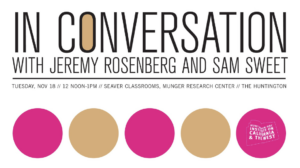
November 18, 2014
Munger Research Center, Seaver Classrooms, The Huntington
Authors Jeremy Rosenberg and Sam Sweet join ICW Director William Deverell to talk about the untold histories and development of Los Angeles through their works Under Spring: Voices + Art + Los Angeles and All Night Menu respectively.
This conversation is part of a brown bag luncheon series sponsored by ICW.
-
Between 2006 and 2013, artist Lauren Bon and her Metabolic Studio team transformed the area below Los Angeles’ North Spring Street Bridge into a vibrantly creative space that served as a public square, ceremonial ground, art gallery, community garden, and musical instrument. In Jeremy Rosenberg’s award-winning oral history book, Under Spring: Voices + Art + Los Angeles, sixty-six people from all walks of life chronicle the space’s many metamorphoses, and in doing so construct an energized account of change and development in L.A. Under Spring is the winner of the 2013 California Historical Society Book Award. Jeremy Rosenberg is the Assistant Dean, Public Affairs and Special Events, USC Annenberg School for Communication and Journalism.
-
All Night Menu is a series of booklets about the untold histories of Los Angeles. Each volume contains eight addresses; each address reveals a different strand of LA culture. The booklets draw from all time periods, subcultures, and sections of the city. Their only bias is towards subjects distinct to Los Angeles and unnoticed by the rest of the world. Sam Sweet has written about surfing, music, and Southern California for the New Yorker and the Paris Review. He lives in Highland Park.
“Oilmen and Cactus Rustlers: Mexico and the Rise of Modern Los Angeles, 1865-1940″
ICW In Conversation with Jessica Kim

November 6, 2014
Munger Research Center, Seaver Classrooms, The Huntington
Professor and author Jessica Kim joins ICW Director William Deverell as they discuss her upcoming book project titled “Oilmen and Cactus Rustlers: Mexico and the Rise of Modern Los Angeles, 1865-1940″. This focuses on the first century of Los Angeles’ phenomenal growth, the study explores how Angeleno and Mexican investors, elected officials, workers, lawyers, and journalists first forged and then negotiated the relationship between an urban core in Southern California and an imagined and real periphery that stretched across the border deep into Mexico.
This conversation is part of a brown bag luncheon series sponsored by ICW.
-
Jessica Kim received her PhD in history at USC in 2012, was a postdoctoral fellow with ICW in 2013, and is currently Associate Professor of History at CSUN, where she teaches courses on Los Angeles, California, the borderlands, and public history. Her book, Imperial Metropolis: Los Angeles, Mexico, and the Borderlands of American Empire, 1865-1941 (UNC Press, 2019), explores the rise of Los Angeles and investment in Mexico. The book is the co-winner of the 2020 Kenneth Jackson Award for best book from the Urban History Association. She loves combining her interests in public history and the American West on ICW’s social media platforms.
The Paradox of the Jewish Indians: Religion and Race on the Colonial Campus
ICW In Conversation with Craig Wilder
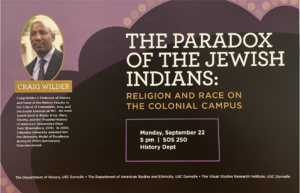
September 22, 2014
USC History Department, SOS 250
Author Craig Wilder discusses his book The Paradox of the Jewish Indians: Religion and Race on the Colonial Campus with ICW Director William Deverell.
This conversation is part of a brown bag luncheon series sponsored by ICW.
-
Craig Wilder is Professor of History and Head of the History Faculty in the School of Humanities, Arts, and the Social Sciences at MIT. His studies focus on American urban, intellectual, and cultural history. Professor Wilder’s most recent book is Ebony & Ivy: Race, Slavery, and the Troubled History of America’s Universities (New York: Bloomsbury, 2013). In 2004, Columbia University awarded him the University Medal of Excellence during its 250th Anniversary Commencement.
Past Tense Seminar 2014-2015
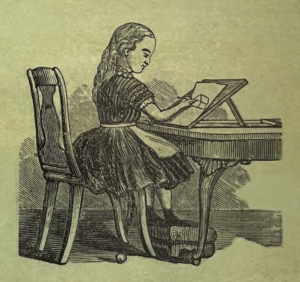
September 12, 2014; October 13, 2014; November 21, 2014
Munger Research Center, Seaver Classrooms, The Huntington
Ann M. Little talks about her work Writing a Biography of an Almost Undocumented Person: Esther Wheelwright, 1696-1800. David Hall talks about his work Re-Imagining “Community” in Early American as a Foil to Our Own Times. Matthew Fisher talks about his work Medieval English Manuscripts in the Hands of Early Modern Collectors.
This programming is brought to you in partnership with the USC-Huntington Early Modern Studies Institute; Mellon Foundation; USC Dana and David Dornsife College of Letters, Arts, and Sciences; Linda and Harlan Marrens; and the Office of the Director of Research, The Huntington.
___________________________________________________________________________
The Crusades of Cesar Chavez, A Biography
ICW In Conversation with Miriam Pawel
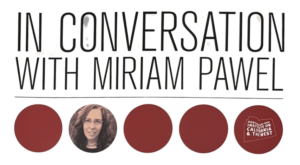
May 21, 2014
Munger Research Center, Seaver Classrooms, The Huntington
In the first comprehensive biography of Chavez, Miriam Pawel offers a searching yet empathetic portrayal. Chavez emerges here as a visionary figure with tragic flaws; a brilliant strategist who sometimes stumbled; and a canny, streetwise organizer whose pragmatism was often a odds with his elusive, soaring dreams. He was an experimental thinker with eclectic passions—an avid, self-educated historian and a disciple of Gandhian non-violent protest. Drawing on thousands of documents and scores of interviews, this superbly written life deepens our understanding of one of Chavez’s most salient qualities: his profound humanity.
-
Miriam Pawel is an author, journalist, and independent historian. Her recent work has sought to explain her adopted home state of California, drawing on history to inform the present and illuminate the future. Her most recent book, The Browns of California: The Family Dynasty that Transformed a State and Shaped a Nation (Bloomsbury, 2018) traces the history of California through four generations of the family of Governors Pat and Jerry Brown. She is a contributing opinion writer for the New York Times.
During her fellowship, Pawel is researching, contextualizing, and writing about income inequality in California. Through historically rooted exploration of promising enterprises in multiple domains, she will examine how the world’s fifth-largest economy grapples with building a new, multiracial middle class. The state that has long influenced the country in myriad ways will prove central to any significant progress toward greater equity in the nation.
The Browns of California was a finalist for the Los Angeles Times Book Prize and won the California Book Award Gold Medal. Pawel’s prior book, The Crusades of Cesar Chavez: A Biography (Bloomsbury, 2014), won the Robert F. Kennedy Book Award and the California Book Award and was a finalist for the National Book Critics Circle Award. Before focusing on the second cut of history, Pawel spent 25 years as an award-winning journalist, directing coverage that won Pulitzer Prizes at both Newsday and the Los Angeles Times. She has received fellowships from the National Endowment for the Humanities and the Alicia Patterson Foundation.
The Environmental History of the Rockies
ICW In Conversation with Thomas Andrews
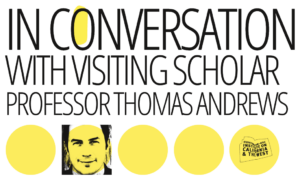
April 24, 2014
USC History Department, SOS 250 & Munger Research Center, Seaver Classrooms, The Huntington
Professor Thomas Andrews discusses his work on the environmental history of the Colorado Rockies as it relates to his published and work-in-progress scholarship at USC from 10-11:3-am. He then hosted an informal discussion about pursuing graduate work in western American and environmental history, grant-seeking, and publication strategies at The Huntington from 1-3pm.
-
Thomas G. Andrews specializes in the social and environmental history of the Rocky Mountain West. The recipient of grants from the U.S. Environmental Protection Agency, The Huntington Library, the National Endowment for the Humanities, the American Council of Learned Societies, and other organizations, he has authored prize-winning articles on assimilation and native resistance in federal day schools for Native American children; intercultural conflict and cooperation between Hispanos and Native Americans on the southern Colorado frontier; and the erasure of labor from Colorado’s leisure landscapes in the late nineteenth and early twentieth centuries.
Andrews’ first book, Killing for Coal: America’s Deadliest Labor War (Harvard University Press, 2008), constitutes the first full-fledged environmental history of labor struggle. Taking as its point of departure the spiraling violence between coal miners and mining companies during the Ludlow Massacre and Colorado Coalfield War of 1913-14, the book probes the origins of fossil fuel dependency in the American West, the role of workplace environments in shaping mine worker solidarity, and the coalescence of migrant laborers from more than thirty nations into a militant fighting force. Killing for Coal has been awarded the George Perkins Marsh Prize by the American Society for Environmental History, the Vincent DeSantis Prize from the Society for the History of the Gilded Age and Progressive Era, the Caroline Bancroft Prize in Western history from Denver Public Library, the Bancroft Prize from Columbia University, and other honors.
Dakota, Or What’s a Heaven For
ICW In Conversation with Brenda K. Marshall

April 10, 2014
Munger Research Center, Seaver Classroom 3, The Huntington
Brenda K. Marshall discusses her new novel Dakota, Or What’s a Heaven For. She discusses the lives and schemes of frontier politicians, Northern Pacific Railroad executives, bonanza farmers, and homesteaders converge in the story of Frances Houghton Bingham, who marries the son of a Red River Valley bonanza farmer in order to remain near her new husband’s sister.
This conversation is part of a brown bag luncheon series sponsored by ICW.
-
Brenda K. Marshall was born on a farm in the Red River Valley of eastern North Dakota, and grew up climbing trees, riding my pony, and daydreaming under a wide prairie sky. She left North Dakota after college, and have since lived in Colorado, Minnesota, Iowa, Washington, Massachusetts, Pennsylvania, Tennessee, and for the past fourteen years, Michigan. She has a Ph.D. in English, and teach part-time in the English Department at the University of Michigan.
She published two novels, Mavis (Fawcett-Columbine, 1996) and Dakota, Or What’s Heaven For (North Dakota Institute for Regional Studies, 2010). She also has published a book of scholarship, Teaching the Postmodern (Routledge, 1992).
Theology and California: Theological Refractions on California’s Culture
ICW In Conversation with Verónica Castillo-Muñoz

April 10, 2014
Munger Research Center, Seaver Classroom 3, The Huntington
Verónica Castillo-Muñoz discusses her work in progress on Northern Mexico in the second half of the nineteenth century. She discusses the origins of Baja land speculation and how indigenous people and Californio families used various strategies to resist and adapt to new realities of land displacements and rampant speculation in Baja California during the second half of the nineteenth century.
This conversation is part of a brown bag luncheon series sponsored by ICW.
-
Verónica Castillo-Muñoz is an Associate Professor in the Department of History at the University of California, Santa Barbara. She is an interdisciplinary scholar with training in Gender history, Latin America, and U.S. history. She has written widely on the intersections between gender, family migration, and the U.S.-Mexico borderlands. Her research has been funded by a Fulbright Garcia-Robles Fellowship, an NEH Huntington Library Fellowship, the Hellman Foundation, and the UC President’s Faculty Fellowship in the Humanities.
Castillo-Muñoz is the author of the book, The Other California: Land Identity and Politics on the Mexican Borderlands, published by the University of California Press (2017). This book examines how communities of laborers changed the racially and ethnically diverse social landscape of the Mexico-U.S. borderlands. Focusing on Baja California, this book is the first to examine the interplay of land reform and migratory labor and how global migrants and Mexican workers transformed the Mexico-U.S. borderlands between the years of 1850 and 1954. Previous research on migration and border crossings portrays the Mexican borderlands as a temporary place for transitory labor, a launching pad to enter the United States. This book argues that the present-day Mexican borderlands emerged from efforts to keep Mexican labor moving across the U.S. border while fixing national communities in place. This intricate interplay shows how governments, foreign investors, and local communities, engaged in the making of the Baja California borderlands, leading to the booming cities of Tijuana, Mexicali, and Santa Rosalia.
Tales From Two Cities: Writing from California Conference
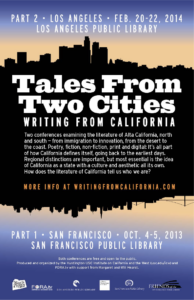
February 20-22, 2014
Los Angeles Public Library
Two free conferences examining the literature of Alta, California, north and south — from immigration to innovation, from the desert to the coast. Poetry, fiction, non-fiction, print and digital: It’s all part of how California defines itself, going back to the earliest days. Regional distinctions are important, but most essential is the idea of California as a state with a culture and aesthetic all its own. What is our sensibility? How does the literature of California tell us who we are?
___________________________________________________________________
Desert Reckoning
ICW In Conversation with Deanne Stillman
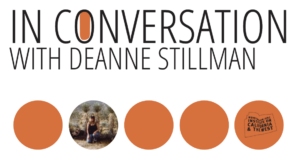
February 11, 2014
Munger Research Center, Seaver Classroom 3, The Huntington
Deanne Stillman talks about her new book Desert Reckoning, Stillman continues her long-time desert beat and uses Kueck’s story as a point of departure to further explore our relationship to place and the wars that are playing out on our homeland. In addition, Stillman also delves into the hidden geologic, Native American, and cultural history of Los Angeles County, and traces the paths of two men on a collision course that could only end in the modern Wild West.
This conversation is part of a brown bag luncheon series sponsored by ICW.
-
Deanne Stillman is a widely published, critically acclaimed writer. Her books of literary nonfiction are place-based stories of war and peace in the modern and historical West. Her latest book is Blood Brothers. It’s about the strange friendship between Sitting Bull and Buffalo Bill, and also features Annie Oakley. It’s framed by the Little Bighorn and Wounded Knee, and explores the spectacle of the Wild West show while Sitting Bull traveled with Cody and Oakley for four months in 1885. Part of it takes place at Standing Rock, where Sitting Bull lived and was assassinated. It received the 2018 Ohioana Award for nonfiction, was excerpted in Newsweek, received a starred review from Kirkus, was named a “best new history book” by Barnes and Noble, appeared on several “best of 2017” lists including two at The Millions, and was praised by Doug Brinkley, Ron Rosenbaum, Thomas Powers and others.